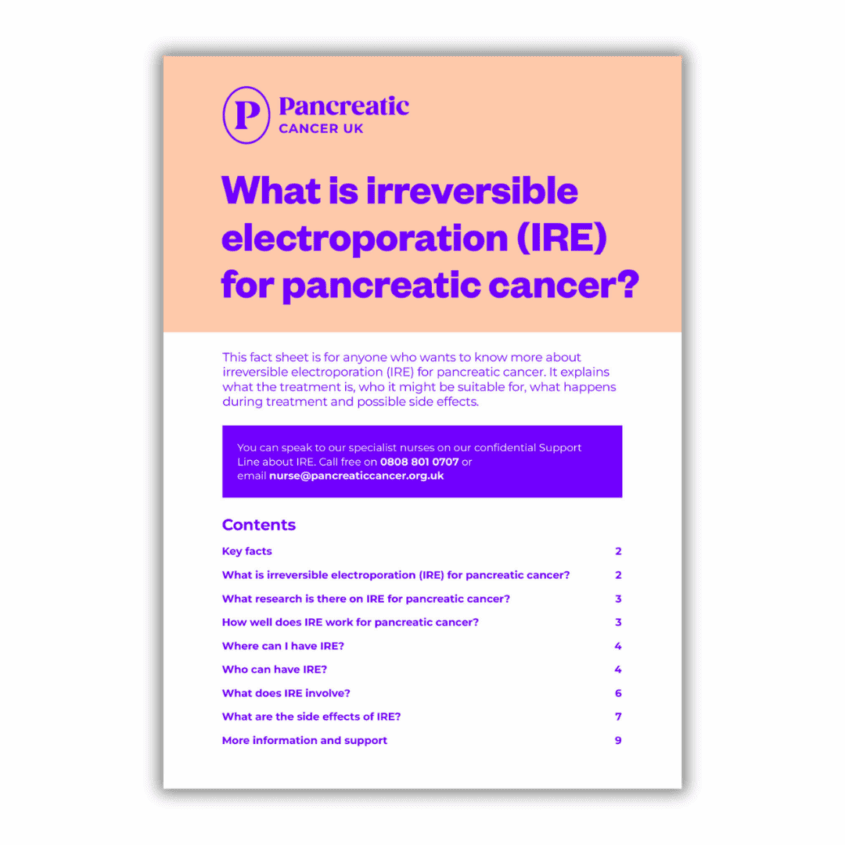How well does IRE work for pancreatic cancer?
We need more research to show how well IRE works for pancreatic cancer.
IRE aims to slow the growth of pancreatic cancer. This may help some people with borderline resectable or locally advanced cancer to live longer. It may also help treat symptoms such as pain.
Where can I have irreversible electroporation (IRE)?
IRE is only available at a few NHS hospitals. If it may be suitable for you, but isn’t available at your hospital, speak to your hospital doctor. They may be able to refer you to another hospital which does provide it.



